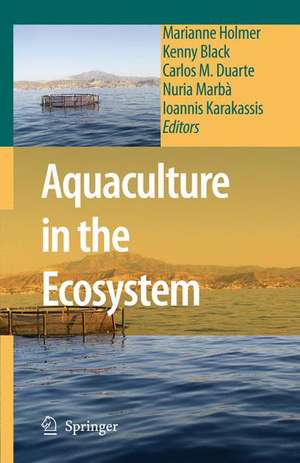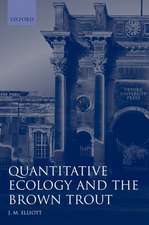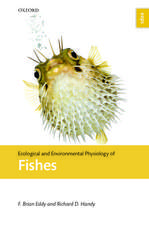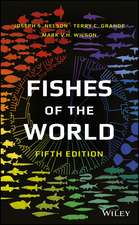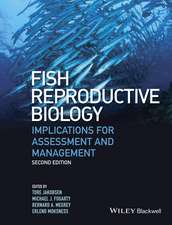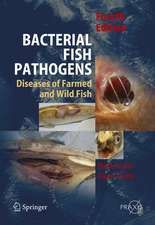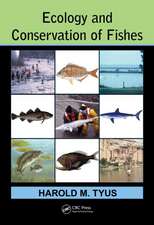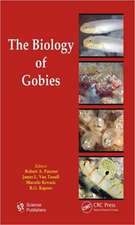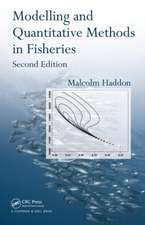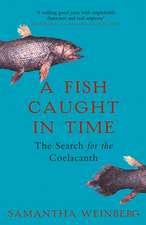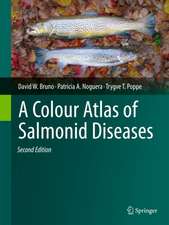Aquaculture in the Ecosystem
Editat de Marianne Holmer, Kenny Black, Carlos M. Duarte, Nuria Marbà, Ioannis Karakassisen Limba Engleză Hardback – 30 ian 2008
| Toate formatele și edițiile | Preț | Express |
|---|---|---|
| Paperback (1) | 788.01 lei 38-44 zile | |
| SPRINGER NETHERLANDS – 19 oct 2010 | 788.01 lei 38-44 zile | |
| Hardback (1) | 950.52 lei 6-8 săpt. | |
| SPRINGER NETHERLANDS – 30 ian 2008 | 950.52 lei 6-8 săpt. |
Preț: 950.52 lei
Preț vechi: 1159.17 lei
-18% Nou
Puncte Express: 1426
Preț estimativ în valută:
181.90€ • 197.52$ • 152.80£
181.90€ • 197.52$ • 152.80£
Carte tipărită la comandă
Livrare economică 22 aprilie-06 mai
Preluare comenzi: 021 569.72.76
Specificații
ISBN-13: 9781402068096
ISBN-10: 1402068093
Pagini: 336
Ilustrații: X, 326 p.
Dimensiuni: 155 x 235 x 26 mm
Greutate: 0.59 kg
Ediția:2008
Editura: SPRINGER NETHERLANDS
Colecția Springer
Locul publicării:Dordrecht, Netherlands
ISBN-10: 1402068093
Pagini: 336
Ilustrații: X, 326 p.
Dimensiuni: 155 x 235 x 26 mm
Greutate: 0.59 kg
Ediția:2008
Editura: SPRINGER NETHERLANDS
Colecția Springer
Locul publicării:Dordrecht, Netherlands
Public țintă
ResearchCuprins
Fish Farm Wastes in the Ecosystem.- Monitoring of Environmental Impacts of Marine Aquaculture.- Aquaculture and Coastal Space Management in Europe: An Ecological Perspective.- Detrimental Genetic Effects of Interactions Between Reared Strains and Wild Populations of Marine and Anadromous Fish and Invertebrate Species.- Non-Native Aquaculture Species Releases: Implications for Aquatic Ecosystems.- Safe and Nutritious Aquaculture Produce: Benefits and Risks of Alternative Sustainable Aquafeeds.- NGO Approaches to Minimizing the Impacts of Aquaculture: A Review.- Aquaculture in the Coastal Zone: Pressures, Interactions and Externalities.- Future Trends in Aquaculture: Productivity Growth and Increased Production.- Status and Future Perspectives of Marine Aquaculture.
Recenzii
From the reviews:
"Marine aquaculture is one of the fastest growing industries globally. … Holmer … and colleagues have compiled papers that describe the impact of fish waste on ecosystems, monitoring of impacts, competing coastal land demands, genetic pollution of wild stocks, inadvertent release of nonnative species, and challenges to sustainable feeding. … Summing Up: Recommended. All readers." (J. Burger, Choice, Vol. 46 (2), October, 2008)
"Marine aquaculture is one of the fastest growing industries globally. … Holmer … and colleagues have compiled papers that describe the impact of fish waste on ecosystems, monitoring of impacts, competing coastal land demands, genetic pollution of wild stocks, inadvertent release of nonnative species, and challenges to sustainable feeding. … Summing Up: Recommended. All readers." (J. Burger, Choice, Vol. 46 (2), October, 2008)
Textul de pe ultima copertă
The global expansion of aquaculture production and its future role as a food supplier to human society has environmental, social and economic limitations, affecting marine ecosystems and socio-economic scales from local to global. The expansion is closely linked with human health requirements and societal needs for various goods and services provided by marine ecosystems. This book provides a scientific forecast of the development in aquaculture with a focus on the environmental, technological, social and economic constraints that need to be resolved to ensure sustainable development of the industry and allow the industry to be able to feed healthy seafood products to the future generations. The chapters included discuss the most critical bottlenecks of the development encompassing subjects of understanding the environmental impacts, the current state-of-art in monitoring programs and in coastal zone management, the important interactions between wild and cultured organisms including release of non-native species into the wild, the current trends within the development of aquafeeds along with human health aspects as well as the political, socio-economic and economic trends within the industry including a chapter on approaches taken by Non Governmental Organisations (NGOs) to aquaculture. Finally the last chapter provides different future scenarios of the industry based on the identified bottlenecks.
The contributions to this book were supported by the EC-funded SAMI project.
The contributions to this book were supported by the EC-funded SAMI project.
Caracteristici
First interdisciplinary approach to aquaculture management Provides future perspectives based on all aspects of the aquaculture production (environmental, social and economically) Provides scientific state of art based on numerous recent research projects Global perspectives on aquaculture Aquaculture as an integrated part of the ecosystem
